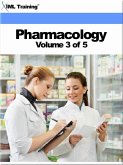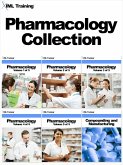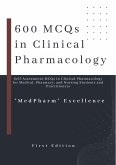A patient who visits a physician or physician extender frequently receives a prescription for a medication. That prescription is brought to the pharmacy to be filled. The patient expects professional attention at the pharmacy. Part of that expectation involves any caution or warning the patient should heed while taking the medication.
In your role you will serve as a source of drug information. Patients and friends will ask you specific questions concerning the use of prescription and over-the-counter medications. You must know the trade and generic names of literally hundreds of medications. Furthermore, you must know the cautions and warnings associated with many agents.
This course will present instruction in anatomy, physiology, and pharmacology.
This course is part of our Pharmacology series.
Includes a questions and answers section at the end of each lesson.
Full illustrations and diagrams included.
Lessons:
- Professional References in Pharmacy
- Anatomy, Physiology, and Pathology Important to Pharmacology
- Introduction to Pharmacology
- Local Anesthetic Agents
- The Central Nervous System
- Agents Used During Surgery
- Sedative and Hypnotic Agents
- Anticonvulsant Agents
- Psychotherapeutic Agents
- Central Nervous System (CNS) Stimulants
- Narcotic Agents
Dieser Download kann aus rechtlichen Gründen nur mit Rechnungsadresse in A, B, CY, CZ, D, DK, EW, E, FIN, F, GR, H, IRL, I, LT, L, LR, M, NL, PL, P, R, S, SLO, SK ausgeliefert werden.









![Basic Pharmacology And Drug Calculations [Practice Questions And Answers] (eBook, ePUB) Basic Pharmacology And Drug Calculations [Practice Questions And Answers] (eBook, ePUB)](https://bilder.buecher.de/produkte/60/60127/60127927m.jpg)